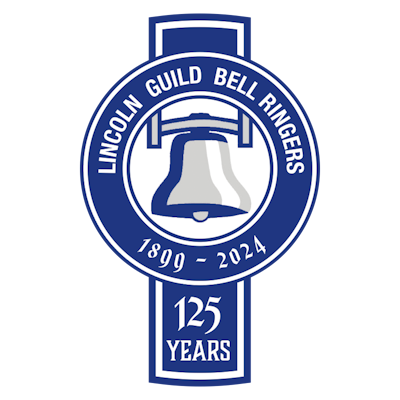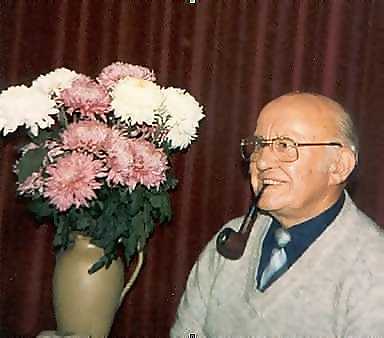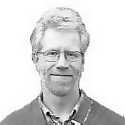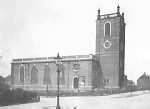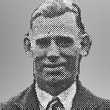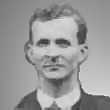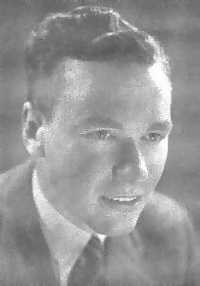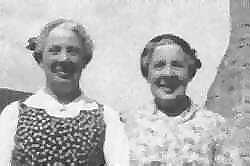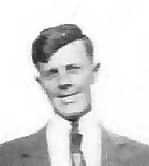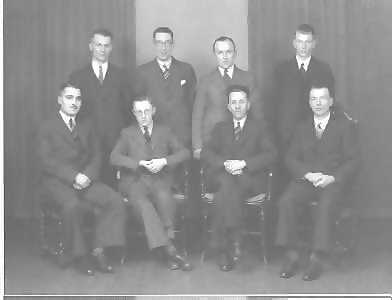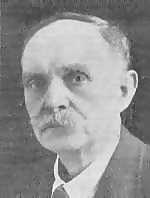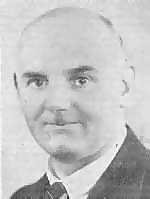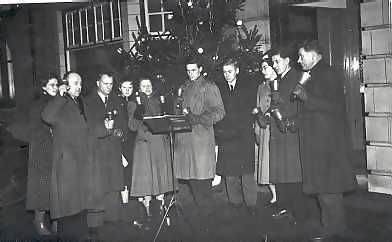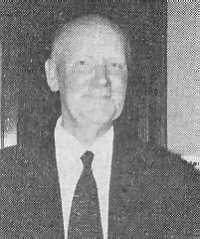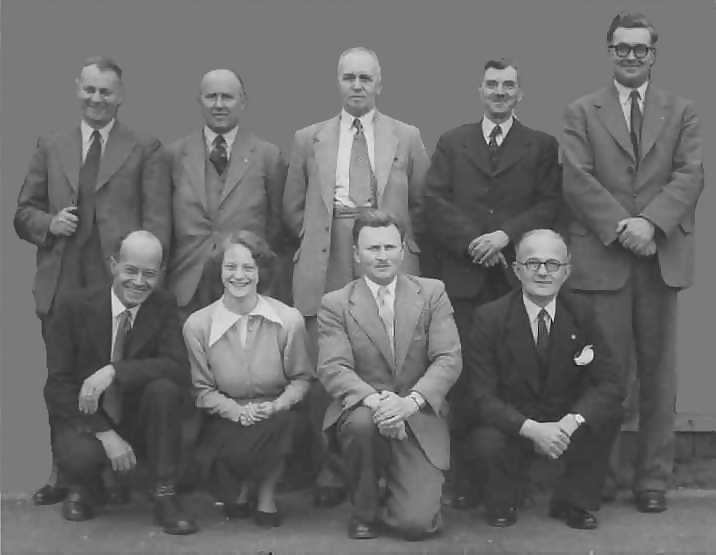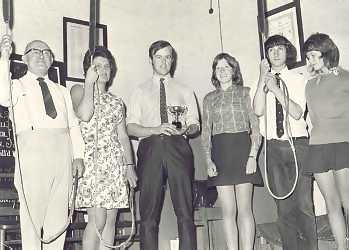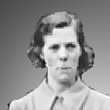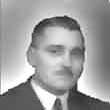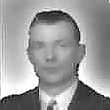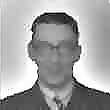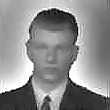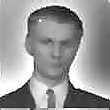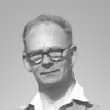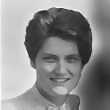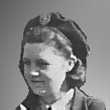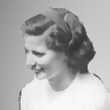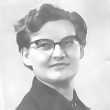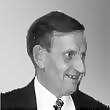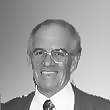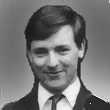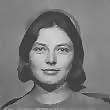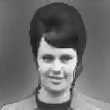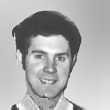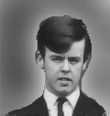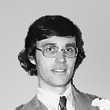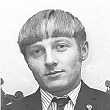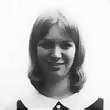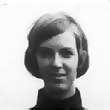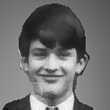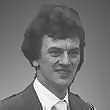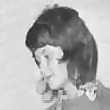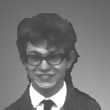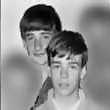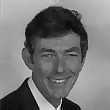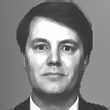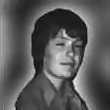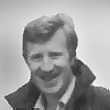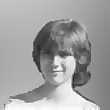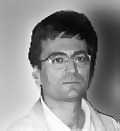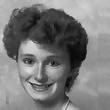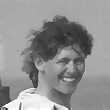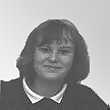|
JACK LEONARD MILLHOUSE Compiled by John R Ketteringham, MBE, PhD
President : Lincoln Diocesan Guild of Church Bellringers, 1989 - 1990 Well done thou good and faithful servant Foreword
by When
I was asked to write a Foreword for this tribute to Jack, I inevitably
turned to my own memories of ringing with him, listening to him
speak at meetings, and of the help he gave freely. In 1987, and
with some trepidation (for I only knew him as Mr Millhouse then!)
I wrote to ask if he would agree to take part in a quarter peal day
that I was organising in the Eastern Branch. At the same time, my
interest in ringing peals had been re-kindled, and I also asked if
he would consider a 'Guild Officers' peal. I still have his (prompt)
reply, which contained encouragement, ideas, and agreement. He closed
his letter with "I will support anything you suggest, Best wishes,
Jack". INTRODUCTION Acknowledgements I
thank those whose first peals Jack conducted for sending me photographs.
Margaret Parker, Gwen Bloomfield, David Phillipson and Beryl Read have also
contributed photographs. I am very grateful to Stephen Ivin and
Alan Ainsworth for their comments on the peal tours in which Jack
took part. I am very grateful to George Dawson for searching through his collection of Ringing Worlds for information and photographs. I
also acknowledge the assistance of Rev John Baldwin, who searched the
Ringing World Index prepared by Cyril Wratten several times on my behalf,
and Dr John Eisel Librarian to the Central Council of Church Bellringers
who made similar searches.
Jack Leonard Millhouse A Biography
It had not been the original intention to transfer the ring of
eight bells which had been cast by Abraham Rudhall of Gloucester in
1728 from St Peter's to St Giles. There was a proposal to hang them
in the tower of St Swithin's or to hang them as two rings of four in
two churches in the Diocese. However, after the parishioners petitioned
the Bishop it was agreed that the bells should go to St Giles. Unfortunately
the tower had been built without provision for a ringing peal and it
had to be strengthened before the bells could be installed. In 1938
the bells were tuned and rehung in the new tower by John Taylor and
Co of Loughborough and dedicated by the Bishop of Lincoln on Whit Sunday,
5th June 1938.
Jack's first peal was rung on 23rd February 1935 at Navenby and conducted by John Walden. His second peal on 4th March 1935 was of Grandsire Triples conducted by Jack Bray and then on 2nd October 1935 he rang Stedman Triples conducted by John A. Freeman. On 12th October 1935 Jack rang a peal of Cambridge Surprise Minor with George E. Feirn conducting and this was the first of many peals they rang together on both tower and handbells.
His fifth peal was also of Cambridge Minor conducted by Fred Stokes and his sixth and seventh were called by George Feirn (Bob Major and seven minor methods respectively). Jack's eighth peal was another of Cambridge Minor with George Creasey conducting and this was followed by Bob Minor with Leslie Lunn conducting. The conducting of his next six peals was shared by George Creasey, George Feirn, Leslie Lunn and Fred Stokes. Jack soon began to take an interest in conducting and he used to ring next to the conductor whenever he could so that he could watch the calling 'to see how it was done' as he put it. This stood him in good stead, because he eventually called 1311 peals out of his total of 2254 (1766 of them being for the Lincoln Guild). On 12th September 1936 Jack rang his sixteenth peal at Elston, Notts when he called seven minor methods for his first in that capacity. His next as conductor was not until 21st August 1937 and his third was on 16th October 1937. Within two years Jack had rung peals of London Surprise Major and Stedman Cinques. He was a member of George Feirn's band which, in 1939, rang the then record peals of Minor. They rang a series of peals increasing the number of methods each time until they broke the then record with a peal in 100 methods. They rang further peals in 102 and 104 methods and then, finally, in 125 methods. On Saturday 17th October 1936 Jack rang a peal at Perlethorpe, Notts conducted by Clifford Vessey. Also in the band were the Burchnall twins (Grace and Katharine) and Harold Denman and this band with a treble ringer rang peals together almost every week with Cliff Vessey conducting. On 14th September 1937 the footnote to a peal at Gainsborough records the fact that Cliff Vessey was leaving the district. Jack now did more of the conducting and his first peal of Major in that capacity was Double Norwich at East Markham on 23 October 1937.
The Burchnall twins, Grace and Katherine, of Sutton on Trent with Harold Denman of Gamston, rang in many of Jack's early peals and continued to ring peals with him for many years. At
this time he was also a keen distance cyclist and the effect of ringing
a peal and biking home along the Ermine Street (often against a head
wind) caused him to fall off his bike more than once. His father
told him to decide which he wanted to do, and the ringing exercise
is the better for the decision he made.
The first
peal on St Giles' bells was of Grandsire Triples and it was
rung on 27th February 1940. The peal was conducted
by Jack. The ringers, as shown in the above photograph, were as
follows : Back row (left to right) Sydney A. Chambers (3); Frank
Metham (2); JLM (7); Noel Chambers (6). Front row (left
to right) Bernard Houseman (5); Raymond Stallibrass (1); Harold
Marcon (4); Jack Chambers (8). It was the first peal on eight
bells by all except Jack and Harold.
Later in 1939 Jack, like so many of his generation, was called to serve his country and he became Able Seaman Millhouse. He was trained as a Royal Navy gunner attached to the Merchant Navy. This took him to all the continents except Australia and his ship was torpedoed more than once. He was reported missing three times. Jack took part in the convoys to Russia in appalling conditions and he was one of those who received a medal from the Russian Government in recognition of this. He spent much of his 'waiting time' working out compositions, and lost them all when the ship was sunk. His last ship used to sail out of Newcastle, carrying coal for the London power stations. In Newcastle he became friendly with William H. (Bill) Barber and in London with George Cross, the Master of the Society of Royal Cumberland Youths. Jack had been elected to that Society in 1937, and was proudly associated with it throughout the remainder of his life and acted as Trustee from 1968 until 1996.
In 1997 the Cumberlands celebrated their 350th Anniversary
and they published memories of some of the Society's esteemed members
in the Ringing World. This is Jack's contribution. In 1947 Jack took part in the record breaking 14,144 of London Surprise Major and later in record peals of Spliced Surprise Major, all called by John Freeman. When Harold Marcon moved to Loughborough in 1949 to work at the bellfoundry of John Taylor & Co. Jack became Tower Captain at St Giles and remained in that post until 1971 shortly after he was elected Master of the Cathedral Company which post he held until 1982. For a number of years in the 1950s it was the custom at St Giles during the week before Christmas for the bellringers to tour the parish ringing carols on handbells. Christmas Eve was reserved for the Maternity Home and the local hostelries. The above photograph shows the following ringers and friends - Left to right : Margaret Parker, Jack, Sidney Chambers, Elaine Greathead, Mrs Swann, Geoff Parker, Derek Smith, Eunice Hunter, Mr Swann and Geoffrey Paul. The first peal week in which Jack took part started with a
peal of Yorkshire Surprise Major at Thirsk on Saturday 30 August 1947
conducted by J Edward Cawser. During the week Jack rang one peal each
day and conducted London at Ormesby. Three of the nine peals in which
Jack took part were called by James Simpson and the names of those
who took part in peals during the week reads like a Whos-Who of the
leading ringers of that time. The week culminated with a peal of
Stedman Cinques at Lincoln Cathedral conducted by Albert Walker.
The band was Alfred H. Pulling 1, William Hewett 2, Margaret Fidell
3, Albert Walker 4, Albert Coles, George Swann 6, Stan Bennett 7, Harold
May 8, Herbert Spencer 9, Jack 10, Frank Pervin 11 and Walter Ayre 12.
The 1963 tour was in Devon and on 2nd October Jack rang
his 1000th peal at Evercreech conducted by Peter Border.
The above photograph is of the band which rang a peal
in 32 Surprise Major Methods at Harmston on 20th February
1954. This was at that time the record number of Surprise Major
Methods rung in a peal. For many years Jack enjoyed the August weekend peal tours with
the Cheshire ringers which were arranged by Arthur Mason.
This photograph is of the band from St Giles which won the Lincoln Guild Striking Competition held at Bassingham in 1971. The ringers are from left to right : Jack, Margaret Parker, David Phillipson, Vivienne West, Chris Sharp and Susan Faull. Jack called his 2,000th peal, Stedman Cinques, at Lincoln
Cathedral in 1984 and his last tower bell peal was rung in 1993,
again Stedman Cinques at the Cathedra1. This was his 100th
as Conductor at the Cathedral and he rang a total of 212 peals on
these bells. His last peal was in 1995 on handbells.
SUMMARY OF THE PEALS RUNG BY JACK
The number of peals Jack conducted is shown in brackets
MAXIMUS (in 17 different methods) 129 (47) 2 (None) 131 (47)Compiled by Geoffrey Parker CINQUES (in 3 different methods) 223 (113) 10 (None) 233 (113) ROYAL (in 24 different methods) 166 (81) 23 (11) 189 (92) CATERS (in 3 different methods) 74 (47) 25 (2) 99 (49) MAJOR (1079 conducted 635) Plain 97 (69) 92 (50) 189 (119) Treble Bob 27 (21) 33 (13) 60 (34) Delight (in 11 different methods) 13 (12) (None) 13 (12) Surprise (in 74 different methods) 729 (434) 4 (1) 733 (435) Spliced Surprise (in 2 to 32 methods) 82 (35) 2 (None) 84 (35) TRIPLES (in 3 different methods) 134 (100) 8 (3) 142 (103) MINOR (373 conducted 267) 1 - 7 methods 161 (102) 5 (4) 166 (106) 8 - 125 methods 105 (84) (None) 105 (84) Surprise (in 1 method) 96 (73) (None) 96 (73) Surprise (in 2 to 7 methods) 6 (4) (None) 6 (4) DOUBLES 8 (5) (None) 8 (5) TOTALS 2050 (1227) 204 (84) 2254 (1311)
REMINISCENCES At the height of his bellringing career Jack was calling so many peals that he commented that it was not so much learning the compositions but forgetting the previous one to learn the next! Although Jack conducted 1311 peals of his final total of 2254 he was always prepared to help and advise the up and coming youngster who showed an interest in this branch of the art. He would eventually arrange for the budding conductor to call a quarter and, when he thought they had sufficient confidence, he would arrange a peal for them to call. I can confirm from personal experience how much it meant to have him in the band when I was bob calling! Indeed on one occasion at Caythorpe I called a peal of Plain Bob with both Jack and John Freeman in the band! Typical of Jack was the occasion when he was calling a quarter peal and he made the day of one 13 year old by asking him before starting how to call a 60 because he couldn't remember how! On another occasion he went to Nettleham to call a quarter for a band of youngsters who were very nervous. When Jack flicked his rope to draw the attention of one of the band who was about to miss a dodge his rope caught on the clock winders platform and the sally didn't appear as expected. The look of amazement on Jack's face followed by a smile eased the tension and everyone relaxed and the quarter was successfully completed! Those who knew Jack will always remember his pipe and the trail
of hot ash which followed him. There were scorch marks on most of
his clothing!
On one memorable Sunday morning he arrived in the Ringers' Chapel
in rather a hurry and hadn't extinguished his pipe properly. Clouds
of smoke were coming from his pocket and he was told he was on fire.
He was quite unperturbed and pulled the offending pipe out of his
smouldering pocket and beat the fire out!
I recently (10th August 2002) attended a meeting at Eagle and this reminded me of an incident which took place after we rang a peal at that tower on 16th October 1956. It was a very dark night and we ended up in a ditch! I fell on top of Jack and broke two of his ribs. When it became apparent that Jack wasn't going to be fit enough to ring in a peal to celebrate the enthronement of the Rt Revd Kenneth Riches as Bishop of Lincoln on Wednesday 7th November 1956 the Master of the Cathedral Company, John A. Freeman asked me to ring. This was how I came to ring my first peal of Stedman and on 12 bells! The peal was conducted by John Freeman and it is something of a miracle that I managed to ring so well because I was very scared and had fortified myself with several brandies! Soon after Jack died, Jim Raithby of Newark contributed an appreciation to the Ringing World. Jim said that there was little chance of a young ringer practising conducting in those days at the cathedral and Jack learned his conducting at Barnby-in-the-Willows with the enthusiastic band of young ringers at that tower. Jim said he was very flattered to have taken part 'in the great Jack Millhouse's first peal as conductor'. Jim went on to say that 'Once we met at Holy Trinity Church Hull, to ring a peal of Cambridge Maximus, the band being graced by the incomparable George Fearn and Arthur Mason. Unfortunately one ringer was missing and Jack went outside to see if he could find him. He was met by a young lady who stated that her brother - an undergraduate at Hull University - had broken his leg that morning playing football. Jack must have scratched his head and wondered what to do. Then inspiration struck him and he enquired of the young lady whether she could ring. She replied in the affirmative and stated that George Fearn knew how badly she rang. Jack persuaded her to have a go and she rang the treble very creditably and the peal was scored. Shades of Lord Peter Wimsey!' I am very grateful to Peter Sharp for contributing the following
account of the way in which Jack introduced him to bellringing.
I think all of those who Jack taught to ring and those who he encouraged
to go on to become competent ringers will agree that Peter's experience
is typical of all of them. I thank Peter for his time and trouble. I am grateful to Robin Heppenstall for the following reminiscences
: It is a tradition at the Cathedral for the bellringers to have
a break from Sunday afternoon ringing when the Choir is on holiday during
August. One aspiring young composer sent compositions to Jack on a regular
basis from London and he called most of them in due course. These two items have been contributed by Bob Smith : We were ringing a peal of Cambridge Maximus at Manchester Town Hall which was being conducted by Ken Lewis. Ken has always been known for calling bobs, singles etc. very loudly. About halfway through the peal Ken called a bob even more loudly than usual. At this point Jack, who was ringing the second bell leaned across and said something which caused Christine Andrew to almost collapse with laughter. After the peal I asked her what Jack had said. Her reply was "There's another peal on at Ashton-under-Lyme and Ken is calling that one at the same time". For many years Washingborough bells were not available for peals.
In 1950 Betty, whose work colleague, Herbert Knott, was a ringer,
persuaded him to obtain permission for Jack to go there to ring a peal
for his birthday. A side to Jack which is not well known was his kindness to those
who were ill. I can well remember him calling to see me when I
was in lodgings in Rasen Lane. This was in 1956 and I was in bed
feeling very low and he suddenly turned up in my garret of a room
at the top of the house. He had called to see me on his way to the
Radion Cinema (now the headquarters of Radio Lincolnshire) to see
Bill Haley and the Comets in 'Rock Around the Clock'! The following item contributed by Jack to the Central Branch Newsletter
for Autumn 1996 gives an insight into the problems of peal ringing
and the enthusiasm of bellringers before cars were the normal mode
of transport.
First peals called by Jack Below is a list of all those for whom Jack called their first peal.
It is important to remember that Jack enabled many ringers, having
rung their first peal, to progress in the art of change-ringing. He
also, later in his ringing career, helped many young ringers to achieve
their first peal as conductor. Jack's philosophy was to give opportunities
and his expectation was that if one arranged a peal band you could
only expect the ringing to be at the level of competence of the band.
Ringing in Lincolnshire is very much the poorer without him. No Date Name of Ringer Bell Tower Method(s) JLM rung Peal# 1 03-Mar-38 Kathleen M. Vessey 1 All Saints Barnby, Notts 8 minor methods 80 2 10-Jan-39 Eric Willcock 1 All Saints Barnby, Notts 10 minor methods 104 3 21-Feb-39 Kenneth M. Willcock 1 All Saints Barnby, Notts 7 minor methods 109 4 12-Jul-39 Frank Metham 1 St Germain Scothern Grandsire Doubles 116* 5 12-Jul-39 Noel Chambers 2 St Germain Scothern Grandsire Doubles 116* 6 12-Jul-39 Sidney A. Chambers 4 St Germain Scothern Grandsire Doubles 116* 7 12-Jul-39 Jack H. Chambers 6 St Germain Scothern Grandsire Doubles 116* 8 17-Jul-39 Raymond Stallibrass 1 St Chad Dunholme Grandsire Doubles 117* 9 17-Jul-39 Bernard Hooseman 3 St Chad Dunholme Grandsire Doubles 117* 10 17-Jul-39 H. William Humphreys 6 St Chad Dunholme Grandsire Doubles 117* 11 24-Aug-46 John E. Cook 3 St Michael Bassingham 8 minor methods 154 12 20-Jan-47 Mrs F. Metham 1 St Giles Lincoln Grandsire Triples 177 13 21-Jan-47 Arthur Melton 1 St Peter at Gowts Lincoln Cambridge S. Minor 178 14 08-Nov-47 Madeleine G. Campbell 1 St Paul Whitley Bay Double Norwich C.B. Major 223 15 12-Feb-49 Margaret Swann[Parker] 1 St Giles Lincoln Plain Bob Major 297 16 03-May-49 Joyce Gibbons 2 St Giles Lincoln Grandsire Triples 302 17 13-Jun-49 Marianne Gann 3 Cathedral Lincoln Stedman Cinques 309 18 26-Dec-49 Norman Hepworth 1 St Giles Lincoln Plain Bob Major 341 19 10-Jan-51 John R. Worsdall 1 St Michael Bassingham 7 Minor Methods 385 20 25-Sep-51 Nancie E. Swann 1 St Michael & All Angels, Heydour Plain Bob Major 414 21 20-Nov-53 Derek E. Smith 1 St Vincent Caythorpe Grandsire Triples 466 22 20-Nov-53 Ralph Hempsall 8 St Vincent Caythorpe Grandsire Triples 466 23 26-Feb-55 Elaine Greathead[Smith] 1 All Saints Harmston Plain Bob Major 512 24 18-Feb-56 Roland Drury 1 St James Grimsby Grandsire Triples 552 25 18-Feb-56 Frank Kennington 5 St James Grimsby Grandsire Triples 552 26 18-Feb-56 David J. Kennington 8 St James Grimsby Grandsire Triples 552 27 30-Sep-56 Paul W. Webb 1 Sts Peter & Paul Rock, Worcs Superlative S. Maj 581 28 11-May-57 David N. Sellars 8 All Saints Harmston StedmanTriples 609 29 26-Dec-57 Peter A. Sharp 1 St Vincent Caythorpe Grandsire Triples 644 30 08-Feb-58 Brian M Bentley 3 St Paul Fulney Plain Bob Major 647 31 30-May-58 Claire Dillamore 1 St Micharl Bassingham Plain Bob Minor 662 32 03-Sep-58 Richard A. Burton 2 St Chad Dunholme 5 Minor Methods 671 33 29-Sep-61 Peter Burton 2 St Chad Dunholme 4 Minor Methods 867 34 10-Mar-62 Janet Burrell 1 Martin by Timberland 10 Minor Methods 895 35 03-Apr-62 Joyce M. Gurnhill[Sharp] 1 St Giles Lincoln Gainsborough LB Maj900 36 15-Jun-63 John N. Edwards 8 St Vincent Caythorpe Stedman Triples 973 37 29-Aug-64 Paul Raithby 1 St Paul Daybrook Grandsire Triples 1064 38 12-Sep-66 David Phillipson 1 St Giles Lincoln Grandsire Triples 1195 39 27-Dec-66 David V. Carrott 3 St Helen Willoughby 2 Minor Methods 1222 40 27-Dec-66 C. Victor Waite 4 St Helen Willoughby 2 Minor Methods 1222 41 09-Dec-67 Gillian Radley 2 St Chad Dunholme Cambridge S.Minor 1277 42 09-Dec-67 Julie Radley 3 St Chad Dunholme Cambridge S.Minor 1277 43 22-May-68 M Ian Minns 2 St Oswald Blankney Plain Bob Minor 1300 44 22-May-68 John Parkin 3 St Oswald Blankney Plain Bob Minor 1300 45 22-May-68 Robert H Minns 4 St Oswald Blankney Plain Bob Minor 1300 46 03-Nov-69 Alan J Sinden 2 All Saints Nettleham Plain Bob Minor 1381 47 26-Dec-69 Vivienne West 1 St Giles Lincoln Plain Bob Major 1387 48 26-Dec-69 Susan A Faull 2 St Giles Lincoln Plain Bob Major 1387 49 14-Mar-70 Alan Crabtree 12 St Alphege Solihull Grandsire Cinques 1391 50 14-Nov-70 Gregory J. Webster 1 St Chad Dunholme Plain Bob Minor 1427 51 04-Jun-71 David Booth 1 All Saints Nettleham Cambridge S. Minor1447 52 25-Jan-72 Fiona MacInnes [Watson] 1 St Michael Waddington 3 Minor Methods 1495 53 26-Feb-72 Margaret C. Ranken 4 St Swithun Bicker Kent T.B. Major 1498 54 04-Apr-72 Susan J. Bennett 1-2 Nettleham Handbells Plain Bob Major 1503 55 04-Sep-72 Susan I. Abery 1 St Giles Lincoln Grandsire Triples 1523 56 07-Apr-73 Colin P. Drabble 3 St Giles Lincoln Plain Bob Major 1549 57 07-Apr-73 Alan E. Brown 5 St Giles Lincoln Plain Bob Major 1549 58 19-Aug-74 David Collis 5 Walesby Kent & Oxford T.B. Major 1591 59 31-Aug-74 Nigel Turner 8 Middlewich Stedman Triples 1592 60 01-Jan-75 Susan A. Smith 2 Lincoln Cathedral Stedman Triples 1613 61 01-Mar-75 C. Anita Gibson 1 St Swithun Bicker Grandsire Triples 1619 62 25-Sep-76 Michael J. Wallis 3 All Saints Nettleham Plain Bob Minor 1665 63 02 Feb-77 Robert Wilson 5 All Saints Sutton-on-Trent Plain Bob Major 1672 64 29-Mar-77 Jackie E. Hill 1 St Giles Lincoln Cambridge S Major 1675 65 22-Apr-77 Richard J. Davies 8 St John Colston Bassett Stedman Triples 1677 66 06-Jan-79 David J. Townsend 1 St Chad Welbourn Grandsire Triples 1726 67 29-Mar-82 Keith D. Anderson 1 Scothern 3 Minor methods 1804 68 29-Mar-82 Michael J. Bentley 2 Scothern 3 minor methods 1804 69 29-Mar-83 Mark P. Jacot 3 Scothern 3 minor methods 1804 70 05-Jan-82 Graham F. Whittaker 8 St John Washingborough Stedman Triples 1810 71 16-Oct-82 Judith N. Bloomfield 3 St Andrew Burton-Stather Plain Bob Major 1822 72 25-Oct-82 Jeremy M. Wheeldon 3 St Chad Welbourn Plain Bob Major 1823 73 23-Nov-82 Karen Thompson 1 St Oswald Blankney Plain Bob Minor 1829 74 27-Nov-82 Timothy J. Day 3 St Mary Horncastle Cambridge S. Mino 1830 75 06-Mar-83 Lorna J. Waite 1 Holy Trinity Raithby Plain Bob Minor 1844 76 06-Mar-83 K. John Turner 4 Holy Trinity Raithby Plain Bob Minor 1844 77 24-Mar-84 Judith J. Williamson 1 St Peter Navenby 7 Minor Methods 1943 78 06-Oct-84 Clare L. Valentine 1 St Peter Norton Disney St Clements & Plain Bob Minor 1986 80 30-Sep-86 Samantha J. Williamson 1 St Oswald Blankney 5 Minor Methods 2109 * All the ringers taking part in Jack's peals numbered 116 and 117 appear to have been members of the recently formed band at St Giles, Lincoln. Some of those for whom Jack called their first peal.
|
![]()
